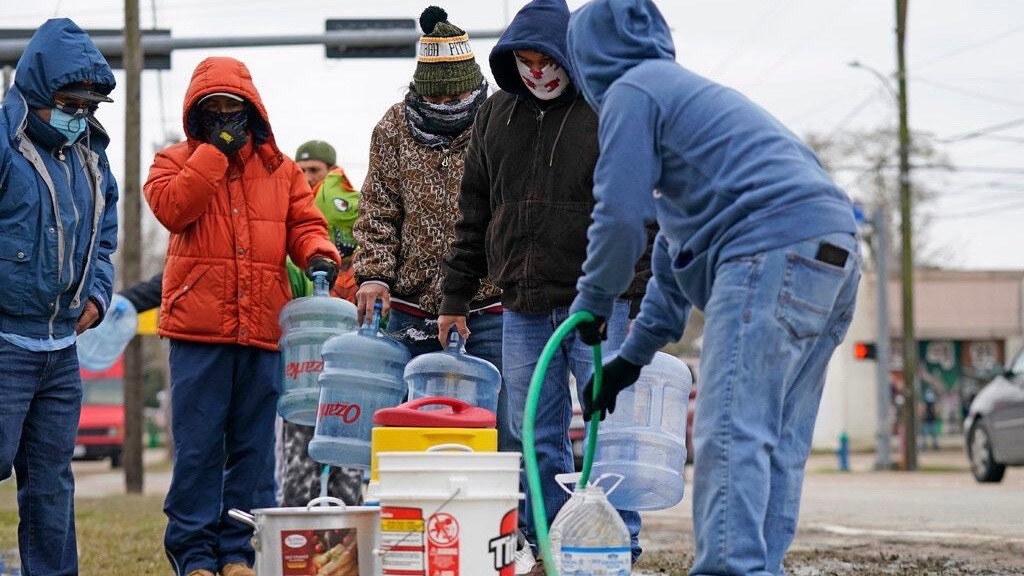A devastating winter storm ravaged much of the continental United States last week, affecting over 170 million across the country, of whom over 120 million were put under one or the other storm emergencies. Though the storm had a continent wide effect, much of the devastation caused was concentrated in the southern state of Texas.
Reports estimate that at least 70 people have died due to storm-related incidents, mostly due to extreme weather conditions and a lack of power. A bulk of these took place in Texas. The final death toll could continue climbing for months, as more deaths due to hypothermia and carbon monoxide poisoning are being discovered by local authorities.
In the meanwhile, activists have also pointed to the negligence towards the homeless population, six of whom reportedly died due to storm-related causes. Moreover, between February 14 and 19, millions across Texas faced water shortages and blackouts. The storm precipitated one of the biggest blackouts in US history.
This is the line to get clean water in Houston.
This line stretched miles, miles of people who do not have water to drink, cook, or clean with.
I will be volunteering at water distribution sites today, if you are able, please join us in helping our neighbors. pic.twitter.com/doeSN1w3Fr
— Rep. Sylvia Garcia (@RepSylviaGarcia) February 21, 2021
Over 4.4 million people faced prolonged electricity outages last week, of whom thousands continued to be cut off from electricity supply as of Tuesday, February 23. At the same time, millions of households were also hit with a steep rise in electricity prices, as private distributors and suppliers hiked the prices to regulated rates of USD 0.12 per kilowatt-hour to as high USD 9 per kilowatt-hour. Dozens of Texans took to social media to show how they have been hit with thousands of dollars of electricity bills by their private service providers.
According to activists on the ground much of the fallout of the winter storm is a direct result of deregulation of utilities in southern states, especially Texas and Mississippi. Private suppliers with deregulated and decentralized grids were largely overwhelmed by the spike in demand as temperatures uncharacteristically went sub-zero in the south.
According to Liberation News, “The spectacular failure of the power grid and historic low temperatures have exacerbated other infrastructure problems and collided with other forms of local and state neglect.”
“Many states have overburdened, overpriced, and under-serviced infrastructure, but Texas’ obsession with ‘independence’ from regulation has made its infrastructure uniquely vulnerable to collapse. This is crystal clear in the power grid, which is notorious for blackouts even in ‘normal’ times.”
The report pointed out that Texas has skirted being governed by the Federal Powers Act of 1935, which governs power regulation, pricing, etc. across the country, by avoiding inter-state electricity trade or supply. The need to avoid federal regulations led the state to import power from the neighboring country of Mexico during a winter storm in 2011, but not from other US states.
Other utilities were also affected in the region with authorities asking affected citizens to boil water due to pipeline burst and inundated water supply. “Bursting water pipes have caused the evacuation of entire apartment complexes as ice-cold water forces residents to flee into snow-covered streets,” Liberation News wrote. “Cities which lost power at their water treatment facilities are asking residents who also don’t have power to boil their water to make it potable.”
Gloria La Riva, civil rights activist, veteran socialist and former presidential candidate for Party for Liberation and Socialism, wrote,”This historic storm is an extreme rarity in Texas, Louisiana and other southern states. The effect of climate change and the cause of this storm are the subjects of another story, although environmentalists say polar vortexes like this storm are going to be more frequent.”
She highlighted that, “in this weather disaster, as in other disasters like COVID, people in the United States are left alone to fend for themselves. Communities of color have been especially impacted, as well as all low-income people. This capitalist system is not concerned with the population in times of crisis. There is no national civil defense to truly take care of people.”
She also compared the situation with that of the neighboring socialist nation of Cuba and how they have historically handled devastating natural disasters with little to no casualties and preparedness to spring back to normal. She admonished the negligence on the part of the authorities, comparing it to the blackouts and massive utilities disruption during wildfires in California.
“This criminal neglect is similar to what happened with Pacific Gas and Electric in northern California. Instead of using tens of millions of dollars designated for infrastructure improvement like burying power lines underground to minimize wildfires, that money was used for executive bonuses. In one example of the effects of that deadly neglect, PG&E powerlines sparked a wildfire that burned down the town of Paradise, killing 86 people,” La Riva added.
Many citizens and activists have blamed the non-government quasi-regulatory body set up by power companies Electric Reliability Council of Texas (ERCOT) for the massive failures. On Saturday, the family of Christian Pineda, a 11-year-old boy who died of hypothermia due to extreme temperatures during the blackout, sued ERCOT for USD 100 million blaming the organization for failing to “winterize” electrical supply in the state. The family received significant support and were able to raise thousands in a crowdfunding campaign to fund the lawsuit.
La Riva had also blamed ERCOT’s failure to avoid unnecessary deaths during the storm. “ERCOT executives can’t explain away its deliberate profit-motivated neglect that plunged 4 million people into freezing temperatures and danger,” she said. La Riva also pointed out how the blackouts disproportionately affected people of color and low-income families in the state, who saw a very slow restoration of their power supply.
With reports from Liberation News.





